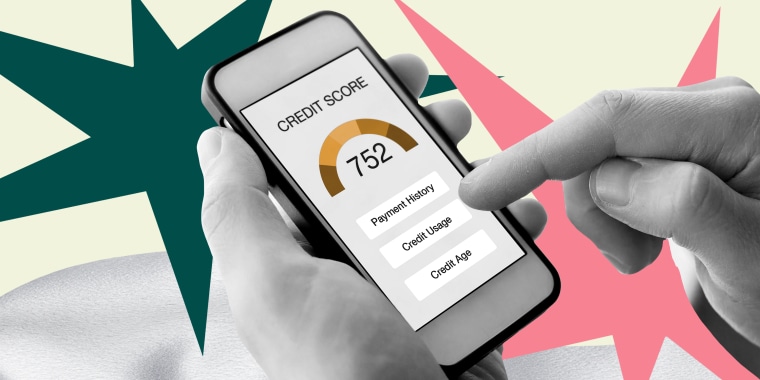If you've ever wondered "What is my credit score?" it's probably time to find out. Having a good credit score can make life a lot more affordable. If you’re about to buy a house or car, for example, the higher your credit score is, the lower your interest rate (and therefore, monthly cost) will probably be.
Your number may also be the deciding factor for whether or not you can get a loan and ultimately determine if you are even able to buy something you want or need.
So, yes, the goal is to have the highest possible credit score you can, but increasing the number doesn’t just happen overnight. There are important steps to take if you want to increase your score, and the sooner you start working on it, the better.
“If you’re trying to increase (your credit score) substantially to accomplish a goal, you’re really going to have to have as much lead time as possible,” said Thomas Nitzsche, director of media and brand at Money Management International, a nonprofit financial counseling and education provider that advises people on how to legally and ethically improve their credit score on their own.
If you have fair credit and you’re trying to improve the number for a house purchase, for instance, you’ll want to start working on it at least a year in advance, he explained to TMRW.
But even though that sounds like a long time away, you can (and should!) start doing things right now to bump that number up. Below, see seven things you should do — and not do — to help improve your credit score:
1. Review your credit report

The first thing you’ll want to do is pull up a copy of your current report so you know where you stand. You can get free reports from all three agencies — TransUnion, Experian, and Equifax — at annualcreditreport.com. Nitzsche said it’s important to take a moment and understand the financial snapshot of where you are today and where you want to be.
You’ll also want to take some time and look for any errors on your report, which could negatively impact your score. “If your name is misspelled, that’s not going to hurt your score,” he explained. “But if you see a late payment or missed payment (that’s in error), or maybe you have an account that should be reporting but isn’t, then that’s a problem and that will impact your score.”
If there is an error, you should dispute it and try to provide as much proof as you can.
One other thing: You can also ask a creditor to remove an issue if it’s been corrected (i.e., if you paid off a collection debt). Nitzsche said it doesn’t hurt to ask and the worst thing they could say is no.
2. Have good financial habits
“The biggest part of your credit score is payment history, so the most critical thing is never missing a due date,” Nitzsche said. Set up a monthly autopay or add all due dates to your calendar so you never miss a bill.
You can also achieve a higher score when you mix different types of accounts on your credit report. It may seem counterintuitive to get extra points for having debt in the form of student loans, mortgages and auto loans, but as long as you’re paying them off responsibly, it shows that you’re reliable.
3. Aim to use 30% or less of your credit at any given time

Know your credit card limit, and try not to use any more than 30% of that number each month, otherwise your score could lose points for too much credit utilization.
Another thing you can do is ask your bank to increase your limit. “That will give you more flexibility to spend more,” Nitzsche said. You could also pay it off twice a month to keep the balance low. But he does warn that you never know when the balance is going to be reported to the bureau. It can happen at any point during the month, so it might be the day after you make the payment or the day before. “You don’t necessarily want to use the card and pay it the next day because that doesn’t give the bureau the chance to know that you’re using it,” he said.
4. Avoid requests for new credit
If you’re looking to increase your score around the time you want to buy a house or car, you won’t want to open up a new line of credit, like a retail card, credit card or loan. That’s because “hard” credit inquiries like those can lower your score, and sometimes it comes down to a few points over whether you’re approved or what your rate will be, Nitzsche said.
“Soft” credit inquiries, like when an employer checks your credit or when you pull your own report, won’t affect your score.
5. Keep all accounts open, even ones you don’t use anymore
Even if you don’t use that credit card from college, it’s a good idea to just keep it open because closing it could hurt your score. Nitzsche explained that you’ll be dinged some points for each account that is closed. If you want or need to mentally break up with a card, just cut it up instead.
6. Build your credit if needed
If you haven’t established credit yet, you might not even exist ... in the credit report space, that is! “If someone has never fallen in delinquency on any subscriptions or utilities or never had collections on anything and they have not utilized credit cards or loans in the past seven to 10 years, they may not have a credit profile at all,” Nitzsche said. “That presents a challenge when you want to buy a home.”
If this sounds familiar, you may have to get a secured credit card where you put down a deposit, he advised. “You still have to make payments and use it responsibly. Not all banks offer them but you can usually check with your local bank or credit union.”
7. Reach out for help

There are many apps and credit-monitoring services that can help you stay on top of your credit score. You could also reach out to a professional credit counselor who can help you navigate your specific situation. (Here’s a good resource about finding a reputable service.)
One last thing: Nitzsche warned that everyone should beware of credit repair scams that claim to be able to increase credit scores for an advance fee to get accurate negative information removed (even temporarily) from credit reports.
Related:



